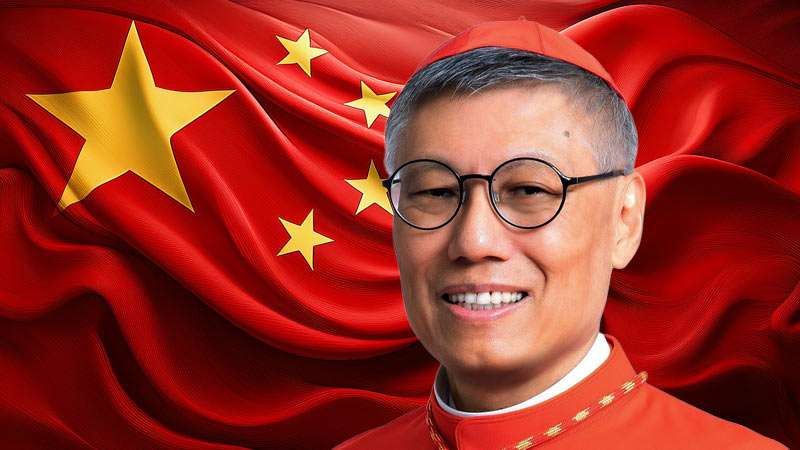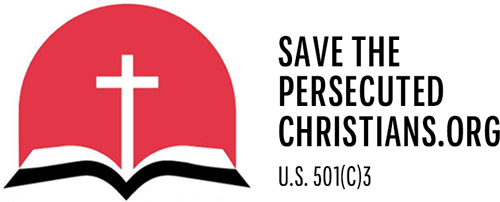Chinese Communist-approved cardinal took part in papal election. Why is no one talking about this?

Hong Kong’s Cdl. Chow, a veritable agent of the Chinese Communist Party, helped elect the new Pope, and if the Sino-Vatican deal is not promptly repealed, he will surely not be the last.
By Dede Laugesen | LifeSiteNews | Fri May 30, 2025
The conclave that elected the first American pope had another first that few have heard about: a voting cardinal named Stephen Chow who was approved for his current position by the Chinese Communist Party, pursuant to a 2018 pact between the Party and the Vatican. He is, by Chinese law, obliged to “support the leadership of the Chinese Communist Party” as part of the CCP’s United Front Work Department. That’s its entity charged with conducting global propaganda and influence operations.
Cardinal Chow was among 133 cardinal electors allowed to participate in the conclave that elected U.S. Cardinal Robert Prevost, who took the name Pope Leo XIV.
Effectively with Vatican approval, the CCP’s “wolf” clerics now travel the world. Wearing the robe of a priestly lamb, they entice the unsuspecting and naïve to worship Xi Jinping – not Jesus. Cardinal Chow recently spoke at graduation ceremonies at Boston University.
Five years into the Sino-Vatican deal, on September 30, 2023, Chow became the fourth cardinal of Hong Kong. While the exact terms of this odious pact have yet to be revealed, it evidently gave the Party a consultative role in selecting and approving new Catholic bishops in the Chinese mainland and, since 2020, in Hong Kong. Unsurprisingly, the CCP has abused its authority, most recently by unilaterally announcing two new bishops during the sede vacante period after the death of Francis.
Cardinal Chow may once have been a true man of the cloth. These days, however, under Chinese religious laws and regulations increasingly impacting the Church in Hong Kong, he is obliged to serve as a tool of the CCP – notably, by advancing demands it has long made on the Chinese mainland and now imposes on Hong Kong, which is now just another PRC city, to the effect that Chinese clergy collaborate to diminish the influence of the “foreign” hierarchy of the Roman Catholic Church in China.
For example, in 2024, according to the U.S. Consulate for Hong Kong and Macau, Cardinal Chow stated that his Catholic diocese had to “adjust certain religious practices” to avoid breaking the new security law. The unspecified adjustments likely involved measures to comply with Hong Kong’s 2020 National Security Law (NSL) and the Safeguarding National Security Ordinance (Article 23), enacted in 2024. It can be inferred from other sources that such adjustments include self-censorship, cancellation of commemorative events and educational compliance, the latter involving altering religious education to align with “patriotic” and socialist values.
It is shocking but not surprising that the Party is, in addition to banning religious activities and Bible sales online, undertaking a 10-year project to rewrite the Bible and other religious texts to make them align with Party ideals. The CCP’s goal is to control the Church and co-opt Christianity as a means of controlling the population and ensuring their allegiance to the Party.
Indeed, the Chinese Communist Party has a history of restricting religious freedom and brutally persecuting religious adherents. Under President Xi Jinping, the Party has become increasingly hostile toward religion, initiating campaigns to “Sinicize” Islam, Tibetan Buddhism, and Christianity to rid them of “foreign influences.”
Sinicization attempts to transform the faithful and their religious institutions into perfect vessels of the CCP, purging all perceived non-CCP influences disparaged by the Party as “foreign.” Sinicization subdues ethnic minorities through forced assimilation in a quest to end all religious worship and practices.
Sinicization and its “patriotic values” – atheistic Marxism, radical national unity, and unconditional fidelity to “His Communist Holiness” Xi Jinping – underpins every major government regulation of religious organizations, whether in the mainland or Hong Kong.
New regulations took effect on May 1, prohibiting Chinese citizens in the mainland from engaging in religious activities with foreigners. By banning foreign observers, the CCP obstructs the Vatican’s ability to monitor the party’s abusive practices.
Based on what little is known about the Vatican’s deal with the CCP, long-suffering, “underground” Catholics are expected by not only Xi Jinping, but the Vatican, to join the sham “church” of the People’s Republic. Known as the “Chinese Catholic Patriotic Association,” it isn’t even called a church. In fact, the Patriotic Association is wholly antithetical to a church, since it is nothing more than a political warfare instrument against religion under the complete control of the Chinese Communist Party’s United Front.
In a Christian church, one expects to hear about Jesus Christ’s life, death, and resurrection. Not in China.
Inside CCP “churches,” Jesus is not welcome. Instead, one finds images of Xi. Homilies promote the principles of Chinese Communist patriotism. Under Xi’s religious regulations and laws, Chinese priests, bishops, and cardinals are mandated to promulgate Communist Party doctrine, not the doctrine of the Church.
Church buildings are not permitted to look like “churches.” That means no stained glass and no crosses visible to the public. The architecture and design of the Chinese Catholic Patriotic Association’s “churches” must not stand out in any way. Xi’s forces have bulldozed many of China’s historic Catholic and Protestant churches because they conveyed religious tradition or symbols.
“Going to Church” in China means leaving children at home, as Communist law prohibits including children under 18 in religious activities of any kind. CCP security guards greet churchgoers at the doors. Believers shake hands with spies in the pews and are videotaped and surveilled.
Being a registered believer of any kind in China automatically decreases a person’s social credit score, making believers vulnerable to an assortment of social pressures and abuse. A believer can be arrested, detained, and harassed at any moment. Religious parents may be turned in to authorities by their own children for teaching or practicing their religion at home. In China, one may be subjected to extreme torture, slave labor, or worse – including forced organ harvesting – for honoring a god or philosophy other than Xi.
By its very nature, the Vatican-approved Chinese Catholic Patriotic Church is heretical and not a “church” by any free world definition. The Vatican’s deal, combined with restrictive laws and regulations emanating from the Party, has given legitimacy to the CCP’s brutal tactics and sealed the fate of Catholics in China and now in Hong Kong. For the faithful, the deal made a sham of religion and the universal command for all disciples to pick up their cross daily and follow after Jesus, even in persecution and death, in defense of the Gospel, which had been the heroic standard of China’s faithful but persecuted underground Church, until the deal was done.
Despite all of this, as China races to eradicate Catholicism within one generation, the Vatican Conclave welcomed Hong Kong’s Cardinal Chow, a veritable agent of the Chinese Communist Party, to help elect the new pope. It leaves one wondering. Cardinal Chow may have been the first CCP cardinal in the conclave, but if the Sino-Vatican deal is not promptly repealed by Pope Leo, he will surely not be the last.
